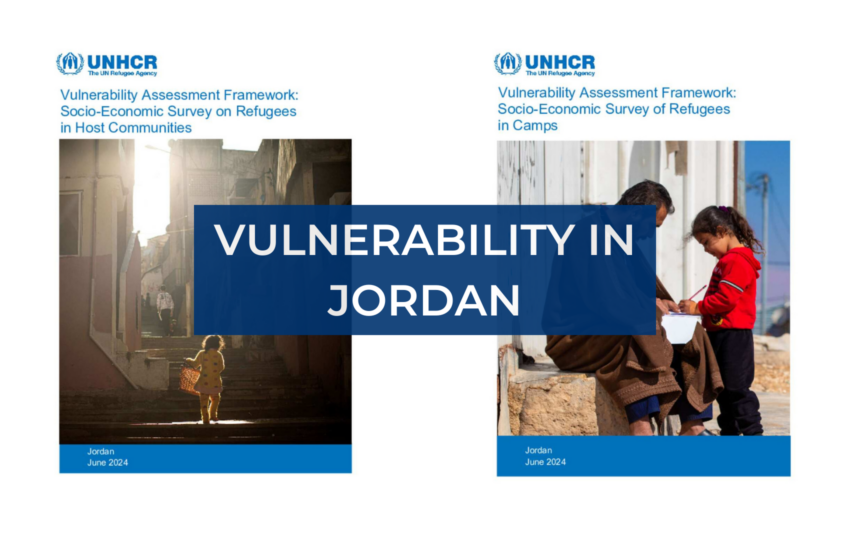The Vulnerability Assessment Framework (VAF) is a tool developed by UNHCR, the UN Refugee Agency, in Jordan to track changes in refugees’ living situation over time.
In 2023, ISDC was tasked with supporting the development of a new module to this framework that can measure climate vulnerability: the climate change vulnerability index.
This index would collect data on refugee households inside and outside of camps in Jordan and establish how vulnerable they are to climate shocks. It would then rank each household in one of four categories: Emergency, Crisis, Stress, and Low Vulnerability. Implementing this index into the VAF allows UNHCR Jordan to understand how vulnerable refugee populations are, and track how this vulnerability changes over time.
Beyond the index, ISDC’s work in this project has delivered a comprehensive, data-driven understanding of the current climate vulnerability of the refugee population in Jordan, both in-camp and in the host population. 40% of all refugees have concerning levels of climate vulnerability (Stress, Crisis or Emergency status). 10% fall into the Emergency category, defined by extremely high levels of exposure and sensitivity, and extremely low adaptive capacity.
Now, we are happy to announce that UNHCR Jordan has published the first set of reports that include climate vulnerability.
- JORDAN : 2024 VAF Socio-Economic Survey in Camps
- JORDAN : 2024 VAF Socio-Economic Survey in Host Communities
The reports include findings on a whole range of other indicators as well, including demographic, shelter, economic empowerment, and food security (among others).
We thank UNHCR Jordan for their support in creating the climate change vulnerability index and look forward to seeing how it helps strengthen the VAF in the coming years.



